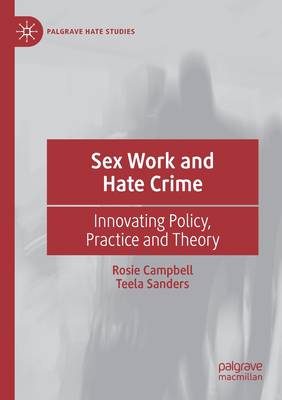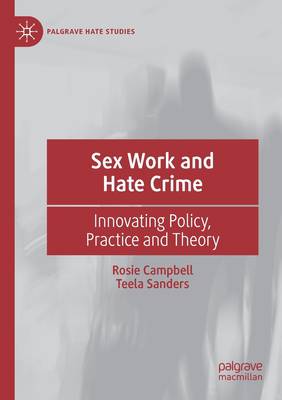
Door een staking bij bpost kan je online bestelling op dit moment iets langer onderweg zijn dan voorzien. Dringend iets nodig? Onze winkels ontvangen jou met open armen!
- Afhalen na 1 uur in een winkel met voorraad
- Gratis thuislevering in België vanaf € 30
- Ruim aanbod met 7 miljoen producten
Door een staking bij bpost kan je online bestelling op dit moment iets langer onderweg zijn dan voorzien. Dringend iets nodig? Onze winkels ontvangen jou met open armen!
- Afhalen na 1 uur in een winkel met voorraad
- Gratis thuislevering in België vanaf € 30
- Ruim aanbod met 7 miljoen producten
Zoeken
€ 68,95
+ 137 punten
Uitvoering
Omschrijving
This book brings together literature, empirical research findings from two projects, and policy analysis to examine how some forces in England have adopted the approach of treating crimes against sex workers as hate crimes. This book identifies some of the benefits of the hate crime approach to crimes against sex workers, both operationally and for some of the victims of crime. The authors argue that the hate crime approach should not be seen as an alternative to decriminalisation of sex work but can provide a pathway to achieving more sensitive but robust policing of crimes against sex workers and support in accessing justice through the criminal justice system. They also examine the broader context of hate crime policy and scholarship as they debate the relevance, problems and merits of the sex work hate crime model. The book provides another dimension to current theoretical and policy debates about widening definitions and law around hate crime to include other groups beyond existing protected characteristics.
Specificaties
Betrokkenen
- Auteur(s):
- Uitgeverij:
Inhoud
- Aantal bladzijden:
- 141
- Taal:
- Engels
- Reeks:
Eigenschappen
- Productcode (EAN):
- 9783030869519
- Verschijningsdatum:
- 11/11/2022
- Uitvoering:
- Paperback
- Formaat:
- Trade paperback (VS)
- Afmetingen:
- 148 mm x 210 mm
- Gewicht:
- 222 g

Alleen bij Standaard Boekhandel
+ 137 punten op je klantenkaart van Standaard Boekhandel
Beoordelingen
We publiceren alleen reviews die voldoen aan de voorwaarden voor reviews. Bekijk onze voorwaarden voor reviews.











